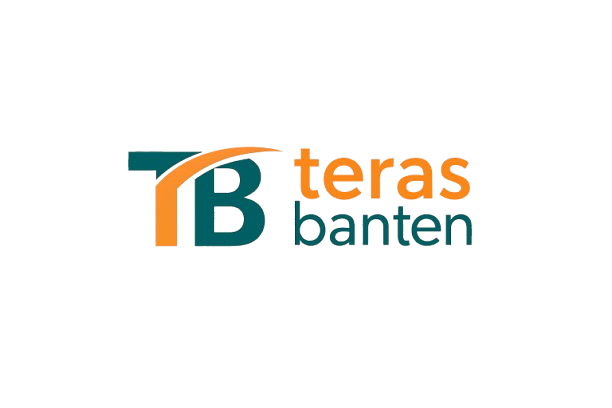Understanding E-Sports Tournaments: How to Get Involved and Compete
 Photo by Muktasim Azlan on Unsplash
Photo by Muktasim Azlan on Unsplash Introduction to E-Sports Tournaments
E-sports tournaments have surged in popularity over the last decade, transforming from niche events to mainstream spectacles. These competitive gaming events span a diverse array of genres, from first-person shooters to real-time strategy games, catering to a global audience of millions. The expansion of e-sports can be attributed to the proliferation of high-speed internet, advancements in gaming technology, and the growth of streaming platforms that allow fans to follow their favorite gamers and teams in real-time from anywhere in the world.
One of the hallmarks of contemporary e-sports tournaments is their impressive prize pools. Major tournaments like “The International” for Dota 2 have offered prize pools exceeding $40 million, highlighting the significant financial opportunities for professional gamers. Similar prestigious events, such as the “League of Legends World Championship” and “Fortnite World Cup,” draw top talent from across the globe, further illustrating the professionalization of the industry.
E-sports tournaments present numerous opportunities for gamers. On one level, there are local and regional events that act as stepping stones for emerging talent, providing a platform to showcase their skills and gain experience. On a more advanced level, there are national and international competitions where the best players and teams in the world vie for supremacy.
Furthermore, the professional landscape of e-sports has evolved to include dedicated e-sports organizations, sponsorship deals, and formalized leagues, mirroring traditional sports in structure and operation. High-profile tournaments often feature state-of-the-art production, complete with live audiences, commentators, and pre- and post-game analysis, adding to the immersive experience for both players and spectators.
From casual gamers to professionals, the appeal of e-sports tournaments is undeniable, offering a new frontier of competitive gaming that continues to grow and captivate audiences worldwide. As the industry evolves, the opportunities for participation and competition only expand, making e-sports a dynamic and exciting field to follow.
Types of E-Sports Tournaments
There exists a diverse array of e-sports tournaments, each catering to different levels of competition, from casual gamers to top-tier professional players. Understanding the various types of e-sports tournaments is crucial for any aspiring competitor to identify the right opportunities based on their skill level and experience.
International Championships: These are the pinnacle of competitive gaming, drawing the best players from around the globe. Notable examples include The International for Dota 2, the League of Legends World Championship, and the Fortnite World Cup. These events are characterized by massive prize pools, extensive global media coverage, and high prestige. Competing in such tournaments requires not only exceptional skill but also extensive preparation and, often, membership in a professional team. These events typically have rigorous qualification processes such as regional qualifiers or point-based systems.
Regional and National Competitions: These tournaments serve as a bridge between local events and international championships. They focus on players from specific regions or countries, offering a more accessible entry point compared to the global stage. Examples include the LEC (League of Legends European Championship) and ESL One tournaments. Success in regional competitions can act as a springboard to the international level, providing valuable experience and visibility. The level of competition here is still high, with many skilled players aiming to make a name for themselves.
Local or Community-Based Tournaments: These are the grassroots of the e-sports world, often organized by local gaming communities, small companies, or educational institutions. They provide an excellent opportunity for new and less experienced players to gain competitive experience and exposure without the pressure of larger events. Accessibility is a key feature, as entry criteria are usually less stringent, and they often facilitate networking among local players and teams. Examples include college leagues, city-wide competitions, and online community tournaments.
In sum, each type of e-sports tournament comes with its unique characteristics in terms of scale, prestige, and accessibility. Whether you are aiming for the grandiosity of international championships or starting your journey in local tournaments, understanding the landscape of e-sports competitions is essential in navigating your path to success.
How to Start Competing in E-Sports
Beginning a journey in e-sports requires a structured approach, starting with the selection of the right game. It is crucial to choose a game that resonates with your interests and skills. Popular e-sports games such as “League of Legends,” “Counter-Strike: Global Offensive,” “Dota 2,” and “Fortnite” offer various genres, each demanding unique strategies and capabilities. Spending time identifying a game that you are passionate about will set a solid foundation for future success.
Once a game is selected, understanding the basics becomes the next step. Investing time in learning the game’s mechanics, rules, and objectives is vital. Utilize tutorials, beginner guides, and community resources to gain a comprehensive understanding. Familiarize yourself with common terminology and standard practices within the game to effectively communicate and strategize with teammates.
Practice is indispensable in e-sports. Developing a consistent practice routine is essential to hone your skills. This includes not only playing the game regularly but also engaging in focused practice sessions that target specific areas of improvement. Analyzing your gameplay, identifying weaknesses, and working on those areas systematically will lead to marked improvements. Additionally, many competitive games offer training modes that allow players to refine their techniques in a controlled environment.
Researching tournament opportunities is a key step towards transitioning from practice to competition. Online platforms and game-related websites often list upcoming tournaments and events. Starting with small, local tournaments can provide invaluable experience and help gauge your current skill level compared to other players. As you gain confidence, you can participate in larger, more prestigious events.
An often-overlooked aspect of e-sports is the study of professional players. Observing top-tier players and learning from their strategies can greatly enhance your gameplay. Many professionals stream their gameplay or upload videos on platforms such as Twitch and YouTube, offering insights into advanced tactics and in-game decision-making processes. Take note of their techniques and try to incorporate those that align with your style of play.
By selecting the right game, mastering the basics, maintaining a rigorous practice routine, exploring tournament opportunities, and learning from professional players, you can set the stage for a successful e-sports career. Dedication, continuous learning, and strategic planning are the cornerstones of competing effectively in the dynamic world of e-sports.
Building and Joining Teams
E-sports tournaments often revolve around team-based gameplay, making team cohesion an essential aspect of success. The importance of teams in many e-sports cannot be overstated, as effective collaboration and strategic planning within a team can significantly enhance performance. Building your own team or joining an existing one involves several strategic steps tailored towards recruiting, networking, and understanding the dynamics that foster successful teamwork.
To build your own team, start by defining the goals and values that will guide your group. Are you forming a recreational team aimed at casual participation, or do you have competitive aspirations? Clearly outlining these objectives can help attract like-minded individuals. Use platforms such as Discord, Reddit, or dedicated e-sports forums to connect with potential team members who share your vision. Networking plays a pivotal role in this process; attending online and offline events, engaging in discussions, and participating in smaller competitions can expose you to a pool of talented players.
Joining an existing team requires a different approach. Research and identify teams looking for new members, ensuring their goals and skill levels align with yours. Most teams have an application or tryout process, so be prepared to demonstrate your skills and teamwork capabilities. Utilize social media groups, recruitment threads on e-sports websites, and in-game clan systems to find opportunities. Not only do you need to display your individual prowess, but showcasing your ability to function in a coordinated unit will significantly boost your chances.
Understanding team dynamics is crucial whether you are building a team or joining one. Each member brings unique strengths and roles that need to synergize for optimal performance. Key roles often include leaders, strategists, support players, and specialists. The importance of clear communication within a team cannot be overstated. Use voice chat tools and consistent team meetings to address strategies, review performances, and resolve any internal conflicts. Strong collaboration fosters a sense of unity and purpose, propelling the team towards shared successes in e-sports tournaments.
Training and Improvement
Developing and honing skills in e-sports is fundamental for any player aspiring to compete at higher levels. Training and improvement are multifaceted processes that encompass various methods and resources. A disciplined practice regime is essential, often involving several hours of daily or weekly gameplay. Structured practice helps players build muscle memory, enhance reaction times, and understand game mechanics implicitly. This regimen should include both individual skills and team coordination exercises, as e-sports often rely heavily on teamwork.
Coaching options have become increasingly accessible and diverse, providing valuable insights and strategies. Professional coaches, often seasoned players themselves, can offer personalized guidance tailored to individual strengths and weaknesses. They assist in refining techniques, analyzing gameplay, and devising strategies to tackle opponents effectively. Platforms offering coaching services have proliferated, enabling players to connect with top-tier coaching talent remotely.
Online resources are abundant and immensely helpful. Educational content such as video tutorials, live streams, and articles are readily available on platforms like YouTube and Twitch. These resources cover a spectrum of topics from basic game mechanics to advanced tactics and strategies, allowing players to continually broaden their knowledge base. Participating in online communities, forums, and discussion boards also provides opportunities for learning and exchanging information with peers.
In-game tools have evolved to support player development significantly. Many games now feature built-in training modules, tutorials, and practice arenas that simulate real match conditions. These tools frequently offer feedback, enabling players to identify and rectify mistakes efficiently. Additionally, analytics and performance metrics provided by these games help track progress and highlight areas needing improvement.
Continuous learning and adaptation to the ever-evolving meta-game strategies are crucial for staying competitive in e-sports. Understanding updates, patches, and meta shifts can give players a strategic edge, making periodic analysis of patch notes and professional matches imperative. By committing to these training principles and utilizing the available resources, players can substantially improve their performance and carve out a competitive edge in the dynamic world of e-sports.
Registering for Tournaments
Participating in e-sports tournaments starts with understanding the registration process, which can vary depending on the type of event. Most competitions are accessible through online platforms dedicated to the e-sports community. Websites such as Battlefy, Toornament, and Challonge specialize in administering tournaments across a multitude of games and genres. These platforms typically require the creation of an account, after which players can browse and register for upcoming events.
Qualifying for larger tournaments often involves a series of preliminary matches or qualifiers. These stages are designed to filter out the best players or teams who will then progress to the main tournament. Such qualifiers might be held online or, in some cases, at physical venues. It’s essential to stay updated on dates and participation criteria, which can usually be found on the tournament’s official website or the associated platform’s announcements section.
Direct invitations are another method through which players can enter high-profile tournaments. These invitations are typically extended to top-ranking players or teams based on their performance and reputation within the e-sports scene. Being visible on leaderboards, consistently performing well in past events, or even being scouted by e-sports organizations can increase the chances of receiving a direct invitation.
When registering, various requirements and documentation might be necessary. Commonly, participants will be asked to provide details such as age verification, team rosters, game account information, and sometimes even a nominal registration fee. For underage participants, parental consent forms may also be required.
To find information on upcoming tournaments, regular consultation of e-sports news websites, social media channels of game developers, and official community forums is advised. Additionally, subscribing to newsletters from popular tournament platforms can provide timely updates and announcements regarding registration openings and deadlines.
Competing and the Tournament Experience
Engaging in an e-sports tournament is a multifaceted journey that requires thorough preparation and strong dedication. The preparation process before the event is a crucial phase. Competitors must practice extensively, studying their own gameplay alongside competitors’. This preparation often involves analyzing past matches, identifying areas for improvement, and setting strategic goals. The time leading up to the tournament can also include individualized coaching sessions, as well as participating in scrimmages to emulate competitive conditions.
Understanding the structure and format of the tournaments is imperative. E-sports tournaments can vary significantly, typically comprising a series of stages such as group play, knockout rounds, and, eventually, the finals. The group stage usually involves round-robin matches, where competitors accumulate points that determine advancement. Knockout rounds follow a single or double-elimination format, which narrows down the field to the final contenders. Familiarity with these formats aids in strategic planning and psychological preparedness.
Handling pressure during matches is a skill developed through experience and mental conditioning. Competitors often employ techniques such as controlled breathing, positive visualization, and maintaining focus on short-term objectives over the course of a match. It is essential to stay composed, as emotional stability directly impacts in-game performance. Maintaining a regular routine, ensuring proper nutrition, and adhering to a balanced sleep schedule significantly contribute to sustaining mental and physical health.
Post-tournament analysis is another critical aspect. Evaluating performance through replays and feedback from coaches or peers provides invaluable insights. This reflective practice helps identify strengths and weaknesses, guiding future training efforts. Debriefing sessions often include discussing what tactics worked well and which areas require refinement, thus paving the way for continuous improvement.
To foster long-term well-being, it is imperative to focus equally on physical fitness. Regular physical exercise, ergonomic gaming setups, and adhering to a healthy lifestyle can mitigate the strain of prolonged gaming sessions. Stress management techniques, such as mindfulness and taking breaks, are equally important in maintaining mental resilience.
Successfully navigating e-sports tournaments demands not only technical skill but also a balanced approach to overall well-being. By prioritizing preparation, understanding tournament formats, managing pressure, and conducting post-tournament analyses, competitors can enhance their performance and sustain their competitive edge.
Career Opportunities in E-Sports
Participating in e-sports tournaments can open a multitude of career avenues for enthusiasts and competitors alike. One of the most direct paths is that of becoming a professional player. With e-sports titles like League of Legends, Dota 2, and Counter-Strike: Global Offensive offering substantial prize pools, many skilled gamers find that professionalism in e-sports can be both lucrative and fulfilling. The journey typically involves joining a team, rigorously training, and competing in various leagues and tournaments.
Additionally, streaming has become a popular and profitable vocation within the e-sports ecosystem. Many athletes and casual gamers build their brands by streaming their gameplay on platforms such as Twitch and YouTube. This avenue not only fosters a dedicated viewer base but also yields revenue through advertisements, sponsorships, and fan donations. Successful streamers like Tyler “Ninja” Blevins have shown that with dedication and charisma, one can turn streaming into a full-time career.
The demand for expertise in gaming strategy has also led many to pursue careers as coaches or analysts. Professional teams often require strategic insights to enhance their performance, thus creating opportunities for analytical minds to delve into game mechanics and develop winning strategies. Similarly, providing analytical commentary during live tournament broadcasts has become a niche yet critical part of the e-sports production pipeline, often occupied by former professional players or gaming enthusiasts with deep game knowledge.
Content creation is another burgeoning field, where individuals create videos, podcasts, or written content related to e-sports. Content creators may focus on game tutorials, match highlights, or in-depth analyses, contributing to the larger e-sports community while monetizing their passion through sponsorships and ad revenue.
Transitioning from casual to professional involvement in e-sports requires dedication, networking, and continuous skill improvement. Engaging with the community through social media, participating in smaller tournaments, and consistently honing one’s craft are essential steps. Success stories such as Faker from League of Legends or PewDiePie in content creation illustrate the limitless possibilities available in the world of e-sports.





Tidak ada komentar